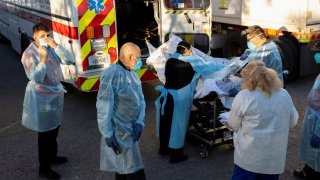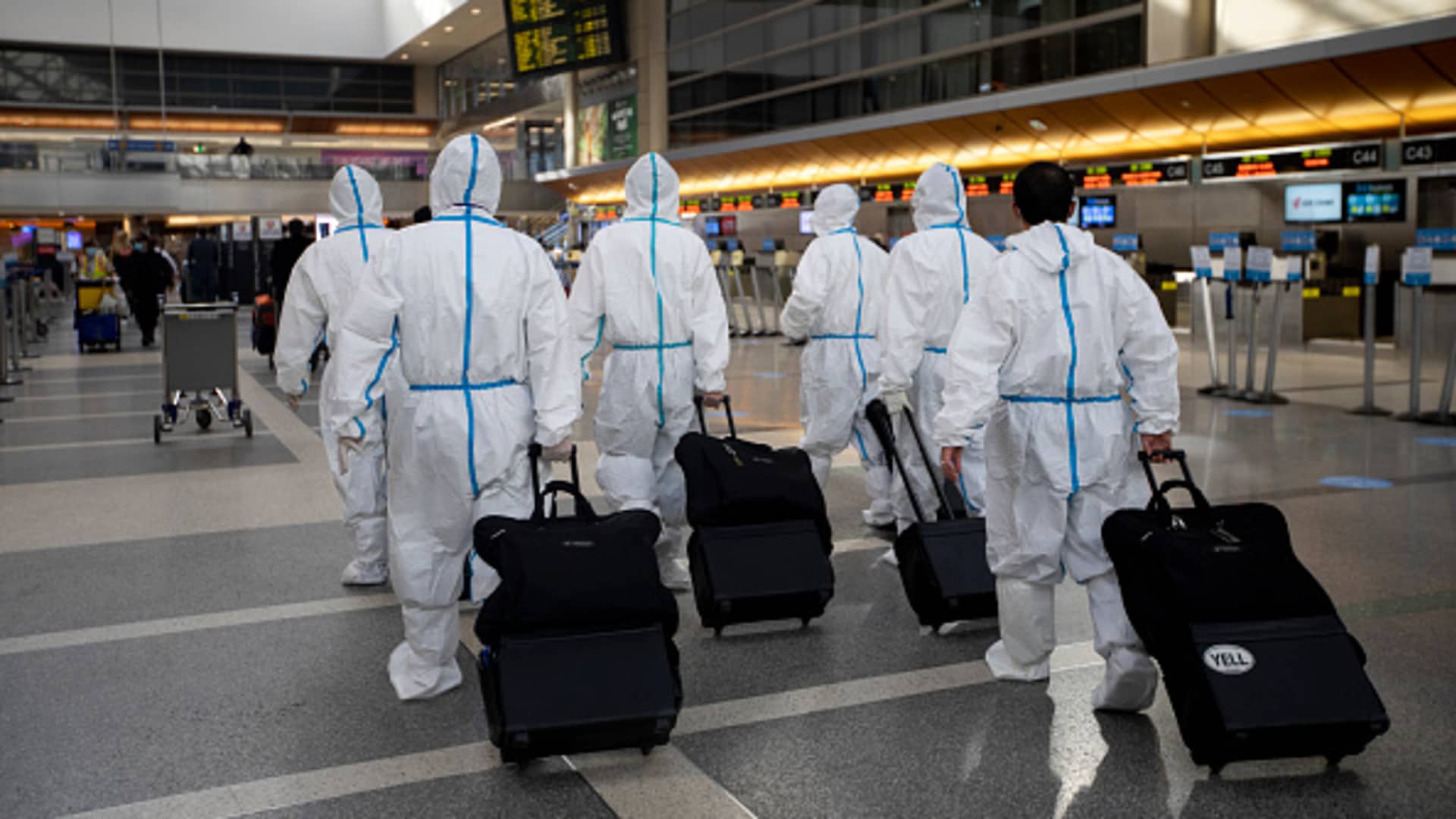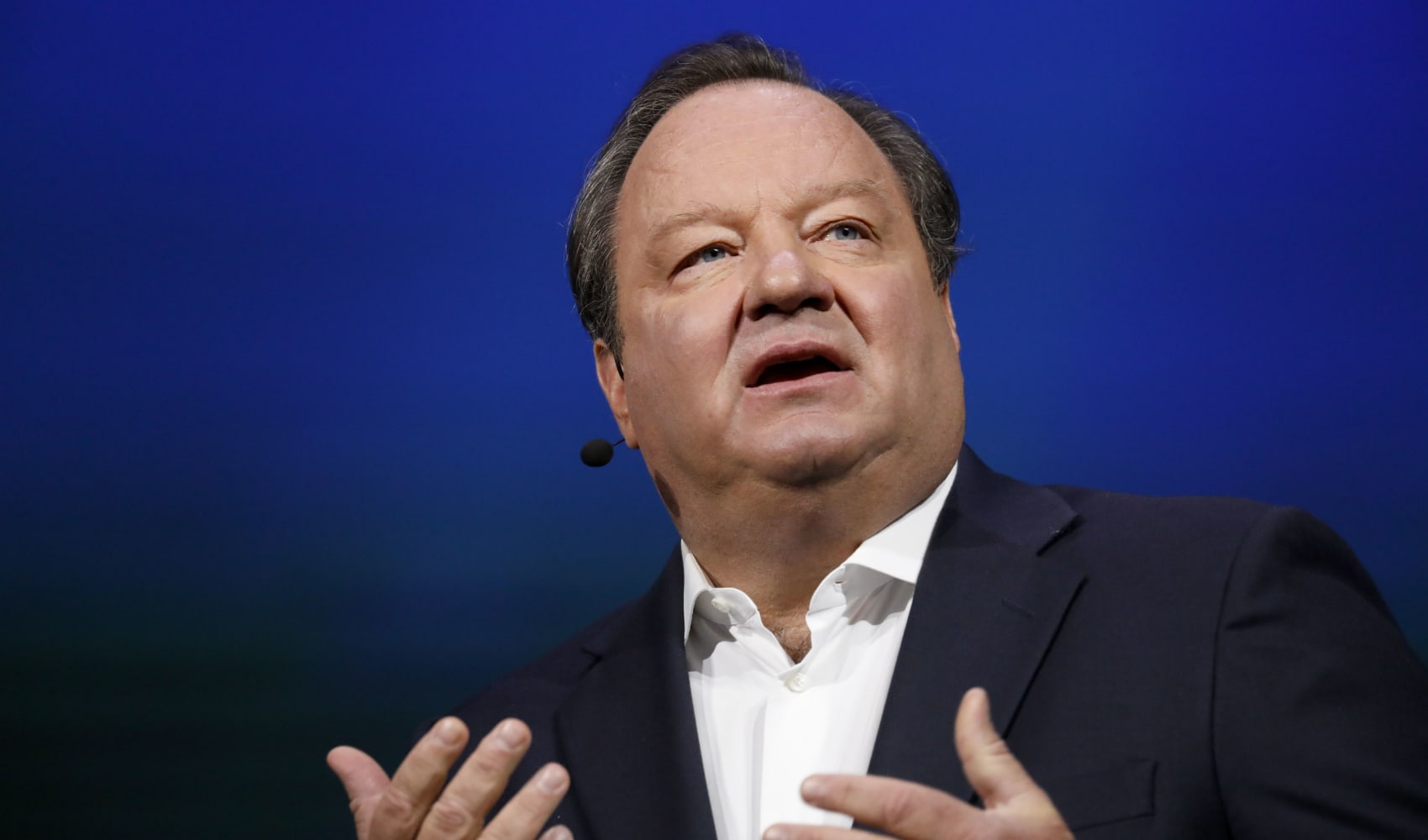
- The CDC's Thursday briefing is the agency's first since August.
- The U.S. coronavirus outbreak has grown substantially worse since then, with the country reporting more than 170,100 new cases of the virus on Wednesday, according to data from Johns Hopkins.
- The CDC now projects that "newly reported COVID-19 deaths will likely increase over the next four weeks, with 7,300 to 16,000 new deaths likely to be reported in the week ending December 12, 2020."

The Centers for Disease Control and Prevention on Thursday advised Americans not to travel for the Thanksgiving holiday to help prevent the spread of the coronavirus.
Dr. Henry Walke, the CDC's Covid-19 incident manager, said there is "no more important time than now for each and every American to redouble our efforts to watch our distance, wash our hands and, most importantly, wear a mask."
"CDC is recommending against travel during the Thanksgiving period," he said. "For Americans who decide to travel, CDC recommends doing so as safely as possible by following the same recommendations for everyday living."
Walke added that the CDC is concerned "about the transportation hubs." He said he's worried people won't be able to maintain social distancing while waiting in line, for example, to board buses and planes.
"We're alarmed," Walke said, adding that the country has seen an "exponential increase" in cases, hospitalizations and deaths recently. "One of our concerns is that as people over the holiday season get together, they may actually be bringing infections with them to that small gathering and not even know it."
Money Report
Roughly 30% to 40% of Covid-19's spread is driven by people without symptoms, he said.
"From an individual household level, what's at stake is basically increased chance of one of your loved ones becoming sick and then hospitalized and dying," Walke said. "We certainly don't want to see that happen. These times are tough. It's been a long outbreak."
Dr. Erin Sauber-Schatz, the CDC's community intervention and critical population task force lead, said "we are asking people to be flexible," adding that those who are visiting at-risk people should be especially careful.
Thanksgiving celebrations should be limited only to those people living in the same household, a definition the CDC clarified Thursday. Sauber-Schatz said only people who have been living in the house for the 14 days before the gathering should be considered a member of the household. That would exclude college students and members of the military who planned to go home for the holidays.
The CDC's "strong recommendation" isn't a requirement, the officials acknowledged. For those who ignore their advice, the agency recommends the following:
- Check the Covid-19 infection rates in areas where attendees of the dinner live.
- Limit the number of attendees.
- Host the gathering outdoors, if possible.
- Increase ventilation by opening windows and doors, or by placing central air and heating on continuous circulation. More information on increasing ventilation in your home can be found here.
- Make sure people are sitting 6 feet away, even outdoors.
- Wear a mask at all times, except when eating and drinking.
- Avoid singing or shouting, especially indoors.
- Avoid potluck-style gatherings.
- Have one person who is wearing a mask serve all the food so that multiple people are not handling the serving utensils.
- Have single-use options or identify one person to serve sharable items.
United Airlines earlier Thursday said bookings were slowing while cancellations were on the rise as Covid-19 cases spike, echoing comments last week from Southwest Airlines. It's bad news for airlines that were hoping for a rebound in demand around the holidays, with air travel traffic hovering at around a third of last year's levels.
The CDC's comments come after seven governors, two Republicans and five Democrats, published an op-ed in The Washington Post that called on Americans to "stay home this Thanksgiving." The authors are Democratic governors Gretchen Whitmer of Michigan, Tim Walz of Minnesota, J.B. Pritzker of Illinois, Andy Beshear of Kentucky and Tony Evers of Wisconsin, and Republican governors Mike DeWine of Ohio and Eric Holcomb of Indiana.
"This is going to be a tough couple of months. It's going to be a hard fight. But we are up for this challenge," they wrote. "Let's continue to listen to medical experts and do our part to protect the brave men and women on the front lines of this crisis. We will get through this together."
Also earlier Thursday, a group of medical associations published an open letter, urging Americans to "celebrate responsibly, in a scaled-back fashion that limits the virus's spread, to help reduce the risk of infecting friends, family and others you love."
The letter is signed by the American Hospital Association, the American Medical Association and the American Nurses Association.
The CDC's briefing Thursday is the agency's first since August. Critics have called on the CDC and its director, Dr. Robert Redfield, to take a more high-profile position in the nation's response to the pandemic as cases, hospitalizations and deaths all continue to rise.
The comments come after the U.S. reported more than 170,100 new cases of the virus on Wednesday, according to data compiled by Johns Hopkins University. That's the second-highest one-day spike reported to date.

As of Wednesday, more than 79,400 people nationwide were hospitalized with Covid-19, more than at any other point during the pandemic. Hospitals in some parts of the country are overwhelmed, moving to surge capacity to provide care to as many patients as possible.
As hospitals try to handle an increasingly large load of patients, deaths caused by the disease are trending upward. The CDC updated its forecast for Covid-19 deaths earlier this week to say that "newly reported COVID-19 deaths will likely increase over the next four weeks, with 7,300 to 16,000 new deaths likely to be reported in the week ending December 12, 2020."
Walke acknowledged that the pandemic is personally difficult for him, too. He said he hasn't seen his parents since January and they're asking him to visit for the holidays. Walke said he will be remaining home to protect his parents, who are elderly and at-risk when it comes to Covid-19.
He said that moving forward, his family is going to be having more frank discussions, particularly with his kids, about what precautions they should be taking.
"As a household, as a family, we can talk to each other more frankly and be a bit more clear about what some of the expectations are," he said. "It's a difficult conversation and sometimes a sad one that you're not going to be able to see your loved ones, but certainly there's other ways to communicate."






